 Toggle Navigation Main Menu
Toggle Navigation Main Menu
- All Animals
- Animals
-
Pets
- All Pets
- Cat Breeds
- Dog Breeds
- Pet Birds
- Pet Rodents
- Exotic Pets
- Pet Fish
- Natural World
-
Quizzes
- Free Lesson Plans & Materials for Educators
- Animal Quizzes
- Personality Quizzes
- Snake Quiz
- Dog Quiz
- Cat Quiz
- Flags of the World
- State Flags
- Recent Articles
- About
- Animals Home
- All Animals
- Birds
- turkey
- Turkey Hunting in Tennessee: Season Timing, Bag Limits, and Best Spots
Turkey Hunting in Tennessee: Season Timing, Bag Limits, and Best Spots
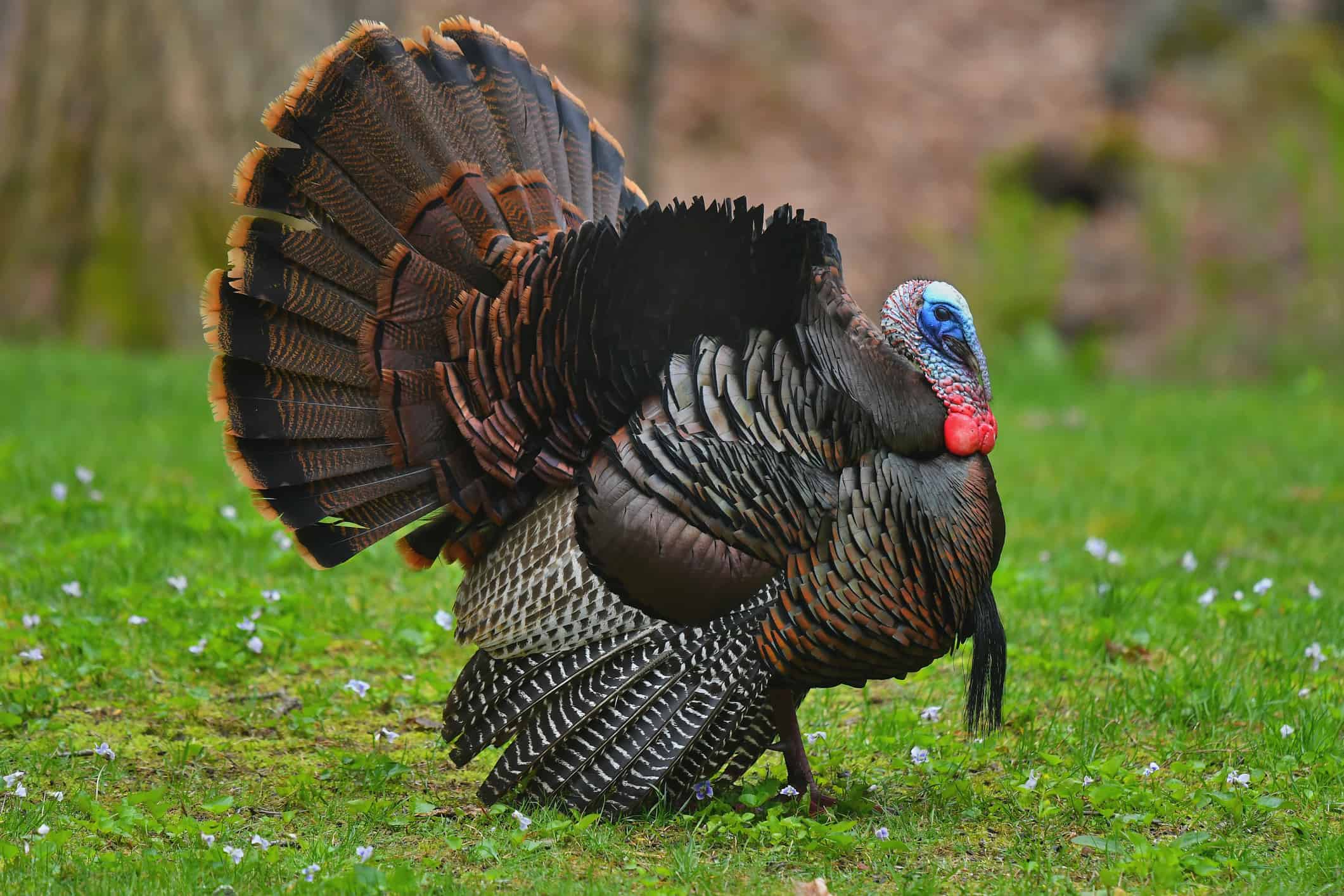 iStock.com/Robert Winkler
iStock.com/Robert Winkler
Written by Micky Moran
Published: August 31, 2023
Advertisement
No big is as large as the nesting wild turkeys in Tennessee, which is part of the reason that turkey hunting is so rewarding. While the bird only has enough power to fly a short distance, this limited mobility is an advantage for local hunters. The state natively has an eastern subspecies, which Native Americans and early settlers used as food. Males tend to be longer and heavier, making them excellent sources of protein for a large family. Rather than going to a supermarket, locals in Tennessee just need a hunting license to bring one home.
Dating back to the 1500s, explorers initially took wild turkeys from Mexico, allowing them to domesticate the bird in Europe. Once they established colonies along the eastern coast, they brought over domesticated turkeys. The birds initially thrived, but the widespread population was overhunted to the point of near extinction in the United States. When wildlife management took over, the population grew again, leading Tennessee to establish its laws on turkey hunting in the state.
Each year, the Turkey hunting season opens, allowing residents and non-residents to see what they can bring home for the family. Here are some factors to consider when turkey hunting in the Volunteer State.
Why Does Tennessee Allow Turkey Hunting?
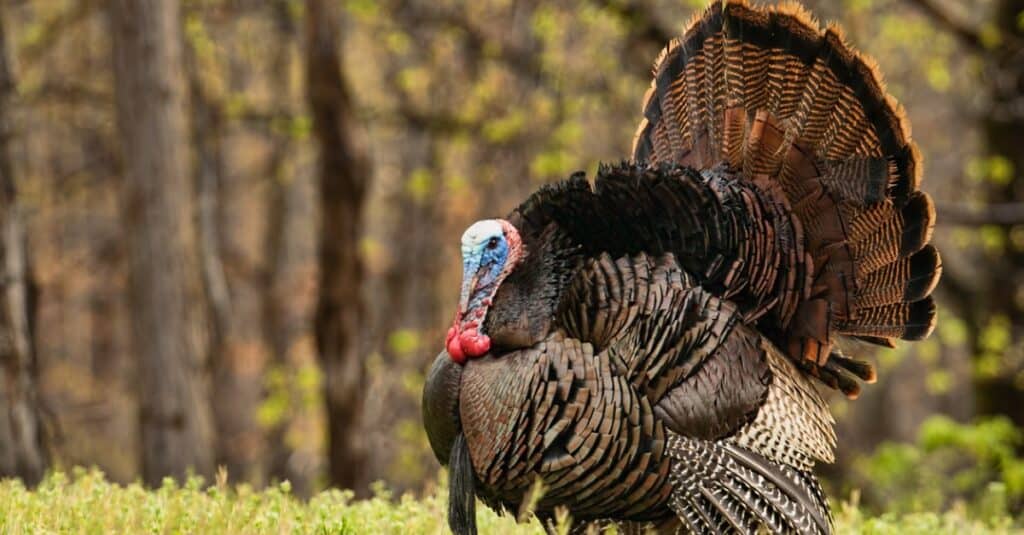
Early introduction by European colonists exponentially increased the local population of turkeys.
©iStock.com/Jens_Lambert_Photography
With many highs and lows in the local turkey population, the most recent conservation efforts allowed the government to restore them. The current goal of local conservationists is to ensure that the population sustains itself, but how can it be sustainable when you can hunt them?
Making a long-term plan to manage the population ensures that Tennessee’s residents still have access to the poultry, but it keeps them from dying out. The Tennessee Wildlife Resources Agency took the matter into its own hands with a 5-year plan (2020-2025 Wild Turkey Strategic Management Plan) that culminates in 2025.
The conservation efforts allowed a surge in turkey population growth, but too many turkeys led to economic loss and conflict. The regulations that Tennessee puts in place with local hunters allow everyone to have access if they encounter one while hunting.
Season Timing: When Is the Best Time to Hunt Turkey?

Spring weather brings welcomed hunting conditions for turkey with fewer restrictions by county.
©KennStilger47/Shutterstock.com
Tennessee has year-round regulations regarding hunting turkey. Each season has its advantages, depending on the preference of the hunter. To be eligible for turkey hunting, local hunters have to apply for the period they want to hunt. For spring hunting, the application process ends in mid-January.
Spring Hunting
In Spring, every county permits turkey hunting with a few regulations. To hunt with a shotgun or archery, the permissible Spring dates occur from mid-April until the end of May. The specific dates depend on the year, but the 2024 season’s spring dates are April 13 to May 26. Local law allows Young Sportsman hunting the weekend before.
The Young Sportsman hunt welcomes children from age 6 to 16, allowing them to get no more than one bearded turkey a day. Local government encourages local hunters to seek out adults, limiting young sportsmen to no more than one jake for their total hunting annually. If the hunter is under 10 years old, they have to pass the Hunter Education requirements. Tennessee law does not require the accompanying adult to have a hunting license, but they’re only around to supervise, not hunt. Any young sportsman under 16 years old needs an adult to come with them without hunting individually.
Fall Hunting
Though hunters in all counties have the freedom to hunt in Spring with proper licensing, hunting during Fall is not available for the following counties:
- Bledsoe County
- Bradley County
- Crockett County
- Dyer County
- Giles County
- Haywood County
- Lake County
- Lauderdale County
- Lawrence County
- Lincoln County
- Loudon County
- McMinn County
- Monroe County
- Polk County
- Shelby County
- Tipton County
- Unicoi County
- Wayne County
Hunting for turkey in the Fall has a lot more restrictions in Tennessee. Regulations state that equipment should not be paired. While you have the option of archery equipment or shotguns, using both is not an option. Bag limits apply for the year when hunted during Fall, but the limit comes from the county, not the state. If you want to hunt more turkeys, go to another participating county to fulfill their bag limit.
From September to early November, only archery is permissible. To opt for a shotgun, the end of October allows a combination of hunters in each county.
Tennessee’s Bag Limits on Turkey Hunting
Bag limits entirely depend on when you go hunting and where. In the spring, you can’t capture more than 1 bearded turkey in a day-long hunt. The maximum number of turkeys allowed is 2 for the entire season. Both turkeys cannot be jakes; they are young turkeys that still need to grow and pump. Both adults and Young Sportsman Hunters have to abide by the 2-turkey maximum limit for the season. Apart from the non-participating countries, the Fall season allows the capture of 1 bearded turkey per county.
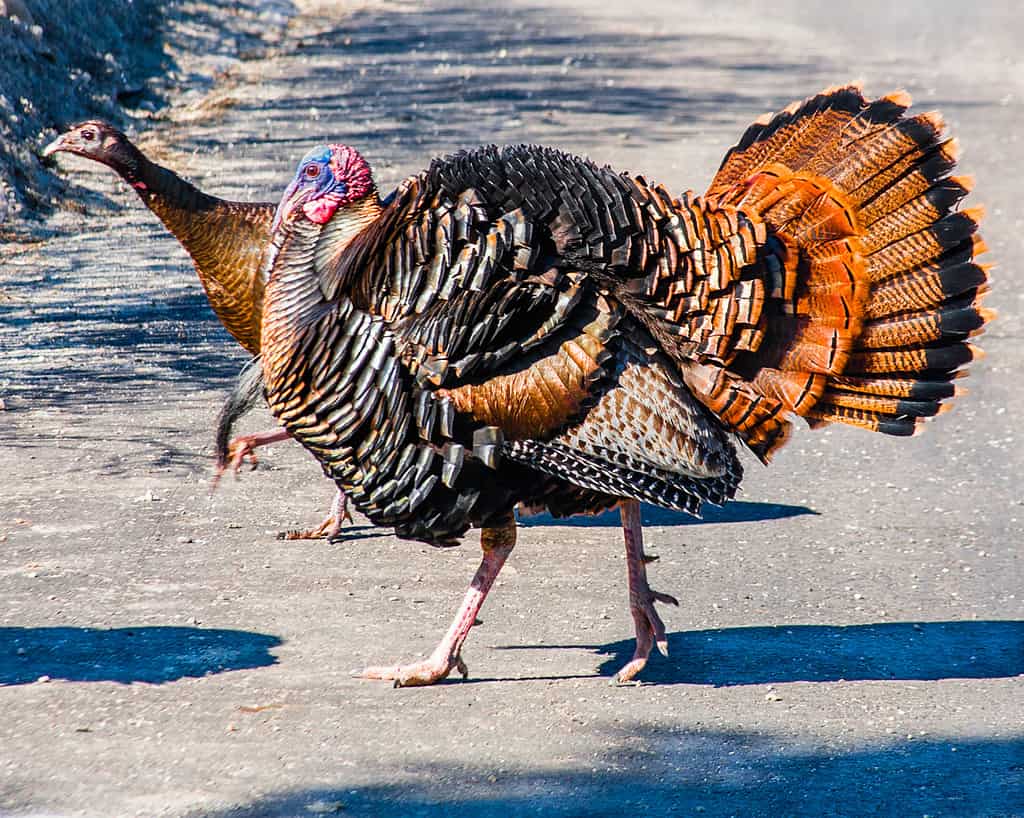
Tennessee law allows only one Jake per season. All other harvested turkeys must meet the adult criteria.
©Paul VanDerWerf (Me in ME) / CC BY 2.0, Flickr – Original / License
To qualify as an adult, the turkey must meet at least one of these criteria:
- White barring to the tips of their wing features.
- Even-length tail features.
- Minimum 6-inch beard.
- The spur is half an inch long.
The bag limits apply whether you hunt turkeys privately or on public land. However, the limit on harvesting turkey is no more than 1 per day and 2 per season.
Tennessee’s Requirements for a Turkey Hunting License
Tennessee doesn’t offer a separate license to hunt turkeys. Instead, locals have the chance to get the Hunting and Fishing Combination license, which is for the year. Without the license, you can’t hunt small game or even fish. For turkey, you need a supplemental license that allows you to hunt bears, deer, boar, and waterfowl as well. When determining the license that suits your needs the best, select the specific hunting equipment that you plan to use.
If you hunt in any Wildlife Management Area for any purpose, you need a WMA permit. The only exceptions are Lifetime or Sportsman Licenses. Anyone under age 16 who hunts small game and waterfowl doesn’t need a WMA permit. Bringing along an adult with a WMA small game permit is the only way that youth hunters can participate.
Anyone who doesn’t live in Tennessee now but was born there needs to apply for a Native Tennessean annual license. However, if you never lived in Tennessee before, the license costs substantially more. While residents and non-residents both need these licenses and permits, locals have the option of registering for a one-day hunting license. Non-residents must register for no less than a 7-day pass while completing the Hunter Education course and abiding by local bag limits.
Use of Hunting Equipment
The hunting equipment allowed during turkey hunting in Tennessee includes:
- Shotguns
- Archery equipment
Local laws do not allow the use of any other weapons as hunting equipment. If you use a shotgun, ammunition must be no bigger than a No. 4 shot. However, the magazine has no limits, so add the number of rounds you want access to on your hunting trek. The state of Tennessee limits archery equipment to longbows, recurve bows, compound bows, and crossbows. Use of an Airbow – a pre-charged pneumatic gun – is legal to use to shoot arrows while hunting turkey.
To get a better look at the game you hunt, scopes and other sighting devices are safe and welcomed in these settings. However, you can’t use artificial light as a method of finding wildlife during these hunts, which rules out night vision and infrared light. Since night hunting isn’t allowed anyway, using a scope is enough to get a good shot.
Hunting With Others
Going along on a hunt with loved ones is a bonding experience like no other. It gives an opportunity between parent and child, siblings, married couples, or longtime friends to feel at peace in nature. The process of hunting is just as functional as it is intimate. However, Tennessee has a few rules regarding hunting with other people.
As a licensed turkey hunter, you must abide by the bag limit at all times. However, if you still want to go along for the hunt with friends and family, leave your hunting weapons at home. If you have them with you, you become an active hunter who still has to follow bag limits and licensing procedures. If your hunting partner doesn’t have a license, they can still join the activity, but they also cannot bring hunting weapons. you either need to procure one or go with another hunter who has a valid permit.
Any young sportsman must have an adult with them who is at least 21. If you are this adult for your child, you have to have the ability to take control of the hunting equipment if the situation requires it. While the supervising adult doesn’t need a license, they cannot hunt when they are in a supervisory position.
What Acts Does Tennessee Law Prohibit While Hunting Turkeys?
Now that you know everything that you need to do to go hunting, there are many rules you cannot break. Non-adherence to the laws means that you can be fined or arrested. According to the Tennessee Wildlife Resources Agency, you can’t use techniques like baiting or emitting electronic calls to get the turkeys to come closer. Some of the prohibited tools and methods of hunting include live decoys, handguns, and ammunition bigger than a No. 4 shot
Some of the prohibited acts depend on the county you hunt in. If you hunt for turkey in Dyer, Shelby, Obion, Haywood, or Lauderdale, you can’t use a boat to stalk or shoot turkey. Reaping and fanning are also prohibited.
Best Places to Hunt Turkeys in Tennessee
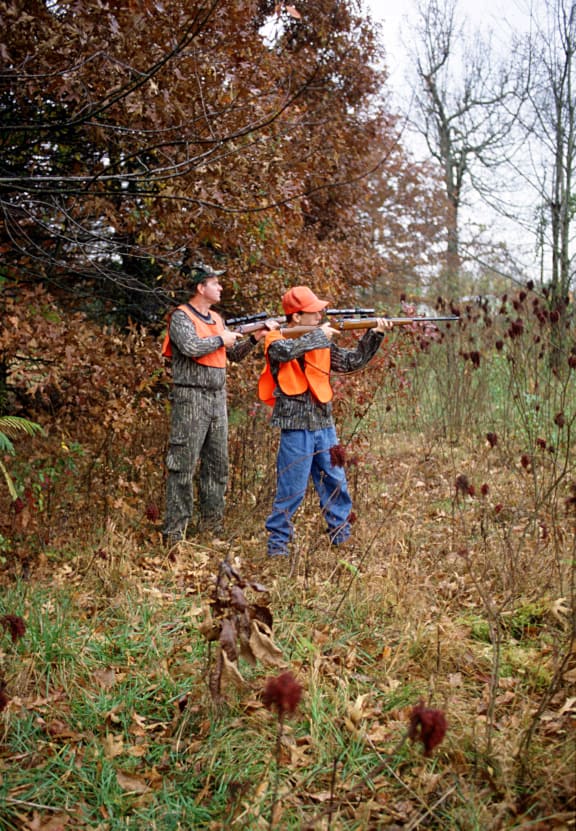
Most of the high harvest numbers come from 10 counties dispersed throughout central Tennessee.
©Land Between the Lakes KY/TN / Public domain, Flickr – Original / License
Central Tennessee has the most turkeys by location, which is probably why 10 separate counties collectively reported the greatest harvest of turkeys last year. Maury County had one of the best hunting seasons last year, with 1,087 turkeys harvested. Dickson County followed behind with 784 turkeys harvested.
With over 2 million acres available to publicly hunt from, hunters in Tennessee have many different spots to choose from. The land is split into national forests, wildlife management areas, and public hunting areas. The state protects some of these locations as national wildlife refuges or national recreation areas. From season to season, the available turkeys to harvest seem consistent, though issues like the environment and overhunting need to be monitored to keep it that way.
How to Add Us to Google News


Micky Moran
Thank you for reading! Have some feedback for us?
Contact the AZ Animals editorial team
Thank you for your feedback!
We appreciate your help in improving our content.
Our editorial team will review your suggestions and make any necessary updates.
There was an error submitting your feedback. Please try again.
Related Articles You May Find Interesting

Gigantic Great White Shark Leaps Out of the Water at a Fisherman’s Boat

This Animal Has Reached Infestation Levels, Now Present in 80 of Tennessee’s 95 Counties

Deer Season In Ohio: Everything You Need To Know To Be Prepared

10 Natural Raccoon Predators: What Eats Raccoons?

Alligators in Lake Okeechobee: Are You Safe to Go in the Water?
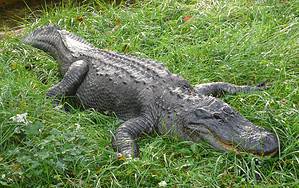
Discover the Biggest Alligator Ever Found in North Carolina

Alligator Hunting in Louisiana: Timing, Locations, Permits, and More!

Bobcats in Alabama: How Many Are There and Are They Dangerous?

Are There More Tigers in Texas Than in The Wild?

Bobcats in Wisconsin: How Many Are There and Are They Dangerous?

Bobcats in Colorado: How Many Are There and Are They Dangerous?

Bobcats in Florida: How Many Are There and Where Do They Live?
How Much Do You Know? 🤔

Join the Conure Quiz and Expand Your Bird Knowledge
Animal of the Day

What’s a Baby Axolotl Called + 4 More Amazing Facts and Pictures!

- About Us
- Contact Us
- Sourcing Our Content
- Privacy Policy
- Terms & Conditions
- Editorial Guidelines
As an Amazon Associate I earn from qualifying purchases. Learn more about us & read our affiliate disclosure.
A-Z-Animals.com is Copyright © 2008 - 2025 A-Z Animals




